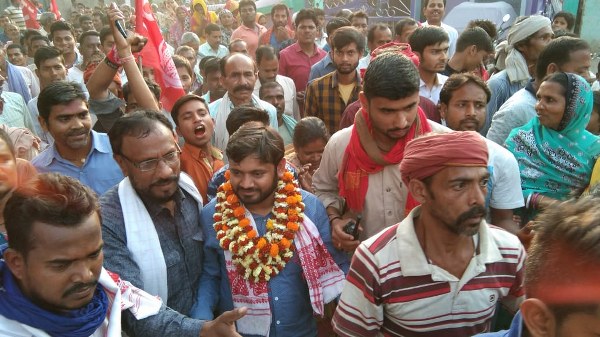The elections aren’t a transactional commodity and voters are not just vote banks that can be wooed with cash and liquor. How can voting be seen with ethical responsibility?
Ravi Bhattacharya is a Political Analyst associated with several grassroots movements based in Raiganj.

India is witnessing one of the biggest moments in its history- the 17th Lok Sabha elections that will determine its faith for the upcoming five year. It is during the election period that democracy in its most vibrant form comes into life, it is a time when ordinary citizens exercise their adult franchise and choose their own representative.
It is therefore the duty of the citizens to not only cast their vote based on immediate monetary benefits or the seduction of parochial caste and regional identities but for the gains within the larger society.
When the citizens recognise the importance of the power of their vote and make it a point to cast it keeping in mind the wellbeing of the nation as a whole, then democracy can prosper in the truest sense.
We hear upper classes complain that the poor cast their votes for immediate benefits like cash, clothes and television sets and not based on issues that really shape the nation’s life trajectory. The majority group says that the minorities vote as a bloc since they all have collective notions about who it might be best for to vote as a community. Those who are the supporters of a particular political party say that those who are voting for another political party are necessarily corrupt and have selfish interests.
All interest groups make the opposing interest groups appear necessarily parochial, selfish and not doing so keeping in mind the national interest. During the times of elections we repeatedly hear these sentiments being articulated by one set of voters about another set of voters. Amongst the hustle bustle of the rhetoric that revolves around elections, what does it then mean to cast one’s vote responsibly? If voting is a duty then what kind of duty should we consider it to be?
Is voting only about choosing one name from a series of names or is it also about thinking, debating and then finally making an informed choice? In a political milieu such as the present, we find the easy flow of money and often cadre members from wealthy political parties go from door to door asking for a vote in exchange of cash or liquor. The cash for vote practice is against the very grain of a democratic election.
When such a practice becomes rampant, then voters see elections as a monetary transaction and political parties begin to view voters as nothing bigger than a vote bank that can be transacted with money. Democracy says that voting is not a transaction but about making an informed choice- it’s not about being sold or being vulnerable to being purchased for cash or immediate benefits but about a vibrant democratic decision making.
Is voting only about monetary gains or is it about making an informed choice to improve the wellbeing of the larger society? The dynamics of voting is a complex one and has to be understood in the context of wider problems in the society.
The primary problem lies in viewing the voter as a transactional commodity and the election as a transaction. We as voters need to understand that we are endowed with the immense responsibility when we are casting our vote, this duty demands ethical understanding, political awakening and rationality. Voting after all is nothing but an act of democratic decision making that requires citizens to look beyond narrow, immediate self-interest.














